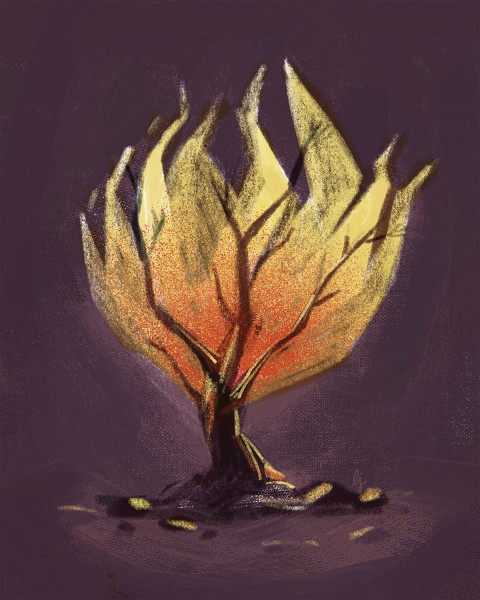The patron saint of in-between things
Having grown up as a Black-mixed kid, I can relate to Moses’ upbringing as not quite Hebrew and not quite Egyptian.

(Illustration by Luisa Jung)
Moses has always been a special figure in my life. I like to think of him as the patron saint of in-between things. He is a child of Israel, nursed by his own mother, falling asleep to the songs of her God, hearing the hum of her prayers in his bones as he feels her chest rise and fall—it’s just enough for him to know there is something of Hebrew life in him, that in some way they are his people. But he doesn’t know the name of their God, nor can he form complex thoughts in their tongue.
He is also a child of Egypt, of empire. He wants for nothing, and he doesn’t fear the slave driver’s whip or the constant question of how hard to work. Too much and you work yourself to death, too little and you bring on a beating or worse. That is not Moses’ life. And yet he knows he looks more like the slaves than the Egyptians. He knows that he is not really one of them and that everyone knows it. How many ways each day is he reminded of what he isn’t?
In the earliest moments of my walk with God, this sort of neither/nor marked much of my life. I was a Black-mixed kid raised by a White mother and extended family, in predominantly White schools. Like Moses, I had a mother and aunties who sang love into me, who tried their best to swaddle me in a life where I could just be me. But sometimes I had to go into the world.




